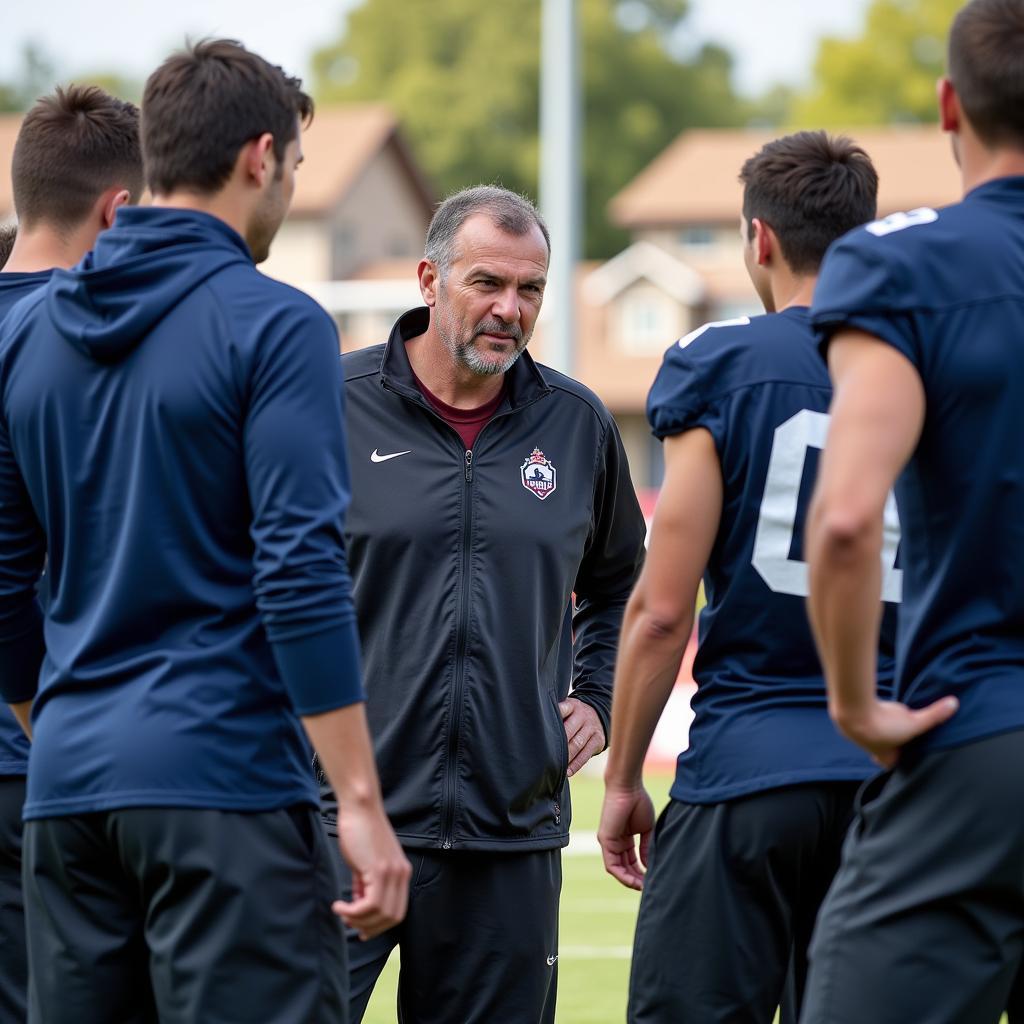Coaching as a career is a rewarding path for those passionate about sports and developing athletes. This detailed exploration of coaching careers will provide Class 11 Physical Education students with a comprehensive understanding of the field, covering various aspects from qualifications to career progression.
Understanding the Coaching Profession
What does a coaching career entail? It’s more than just instructing athletes in a specific sport. Coaching involves a blend of technical expertise, leadership skills, and a deep understanding of sports psychology. A coach guides athletes to achieve their full potential, fostering their physical and mental well-being while instilling discipline and teamwork. Choosing a coaching career in detail class 11 physical education can provide a solid foundation for future pursuits.
Educational Pathways for Aspiring Coaches
How do you become a coach? Formal education is increasingly important in the coaching profession. A degree in physical education, sports science, or a related field provides a strong theoretical base. Specialized coaching certifications and diplomas from recognized organizations are also essential. These certifications validate your expertise in specific sports and coaching methodologies, covering aspects like training principles, sports nutrition, and injury prevention.
Importance of Continuous Learning in Coaching
The sporting world is constantly evolving. Staying updated with the latest research, training techniques, and coaching methodologies is vital for any coach. Attending workshops, seminars, and conferences, as well as pursuing advanced certifications, allows coaches to refine their skills and knowledge, ultimately benefiting the athletes they guide.
 Coach Attending Coaching Seminar
Coach Attending Coaching Seminar
Career Progression in Coaching
Starting as an assistant coach or working with school-level teams provides valuable experience. With dedication and proven success, coaches can progress to higher levels, coaching college, professional, or even national teams. Opportunities also exist in specialized coaching roles, such as strength and conditioning coaching or sports psychology coaching.
Exploring Different Coaching Specializations
The coaching field offers diverse career paths. Strength and conditioning coaches focus on enhancing athletes’ physical attributes, while sports psychology coaches address the mental aspects of performance, helping athletes manage stress, build confidence, and improve focus. These specialized roles highlight the multifaceted nature of coaching.
Essential Qualities of a Successful Coach
Beyond technical knowledge, successful coaches possess strong leadership qualities. Effective communication, empathy, and the ability to motivate athletes are crucial. Building strong relationships with athletes, understanding their individual needs and aspirations, is essential for fostering a positive and productive training environment. A successful coach must also demonstrate ethical conduct and integrity in all aspects of their profession.
 Coach Motivating Team During Huddle
Coach Motivating Team During Huddle
Conclusion
Elucidate The Coaching Career In Detail Class 11 Physical Education provides a comprehensive overview. It is a challenging yet rewarding career path. With the right education, dedication, and passion, coaching can be a fulfilling profession, impacting the lives of athletes and contributing to the sporting world.
FAQs
- What qualifications are needed to become a coach?
- How can I gain experience in coaching?
- What are the different career paths in coaching?
- What are the key qualities of a successful coach?
- Where can I find more information about coaching certifications?
- What is the average salary for a coach?
- How do I become a coach for a professional team?
Need Assistance?
Contact us via WhatsApp: +1(641)206-8880, Email: [email protected]. We have a 24/7 customer support team.

Leave a Reply